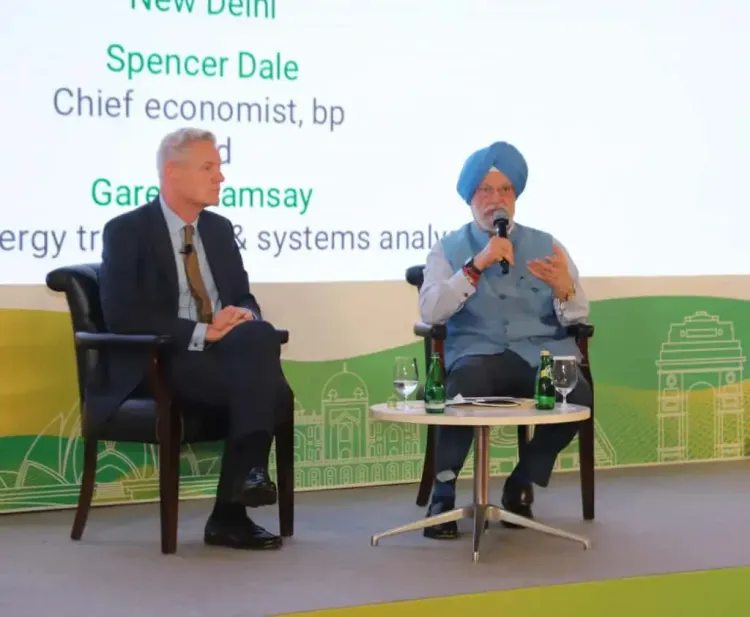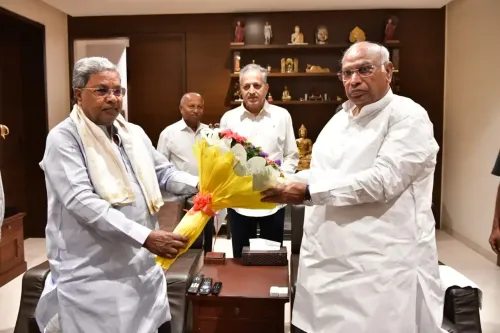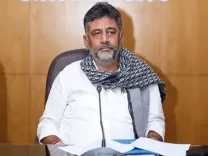Is India Committed to Enhancing Energy Exploration and Production?

Synopsis
Key Takeaways
- India is focused on energy self-reliance.
- Oil and natural gas are critical for industrial growth.
- Energy independence by 2047 is a key goal.
- Transformative reforms are reshaping the energy sector.
- Global energy stability is influenced by India’s choices.
New Delhi, Oct 7 (NationPress) India is resolutely focused on boosting self-sufficiency in the exploration and production of various energy resources, as stated by Union Petroleum and Natural Gas Minister Hardeep Singh Puri on Tuesday.
During an event, the minister emphasized that oil and natural gas have been fundamental to India's industrial progress and modernization, providing 1.42 billion Indians with access to contemporary energy services.
"Looking towards Amrit Kaal, the energy sector will be crucial in attaining energy independence by 2047, a key element of Viksit Bharat under the guidance of PM Narendra Modi," he noted in a post on X, following an engaging discussion with industry leaders, academics, and energy sector experts at the BP Energy Outlook.
According to the minister, India has become the world's third-largest energy consumer, the third-largest oil consumer, the third-largest LPG consumer, the fourth-largest LNG importer, the fourth-largest refiner, and the fourth-largest automobile market globally.
He highlighted a detailed presentation by Spencer Dale, the Chief Economist at BP, which showcased India's impressive energy demand growth. His insights indicated that India's substantial energy needs in the coming decade will necessitate a significant increase in capacity across all energy forms.
Minister Puri remarked, "The Samudra Manthan - National Deepwater Mission launched by PM Modi represents a bold initiative towards exploring frontier resources. In the last decade, we have witnessed transformative reforms shifting from NELP to HELP, transitioning from a ‘production sharing’ framework to a ‘revenue sharing’ model, initiating OALP rounds, and allowing access to 99 percent of offshore 'No-Go' areas, along with the development of the digital NDR.
At the event, he pointed out that the energy transition demands a nuanced understanding and should not be perceived merely as a substitution for fossil fuels.
"Our future endeavors must acknowledge that the decisions we make will influence not only India's destiny but also the stability of the global energy framework," he concluded.









